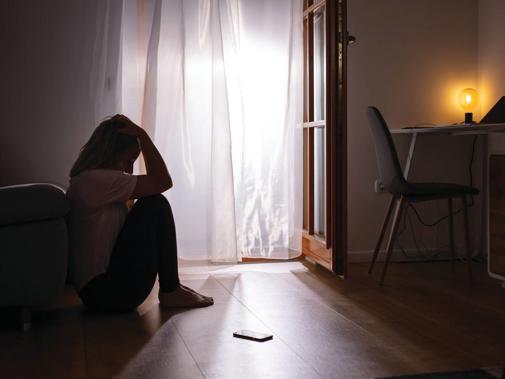As the BMA commemorates today the lives of doctors who have died by suicide, a mental health charity is urging health workers suffering mental distress to seek help.
Doctors in Distress together with NHS Practitioner Health instituted the National Suicide Memorial Day on 17 September last year, to honour those who have died – and to break the stigma around mental health in the medical profession.
The BMA joined the commemorations last year by planting a tree at BMA House in London as a living memorial to those who have died.
Doctors in Distress co-chair, Chaand Nagpaul, a former BMA council chair, is concerned that health workers may even feel ‘guilty for feeling distressed’. Many are suffering in silence, he believes, because taking time out would only add to the pressures on colleagues and the wider system.
‘It would be surprising if colleagues were not in distress, given the environment we work in,’ he says.
‘Where people are managing their own workloads because they don’t feel safe to speak out about the fact they’re not coping, and have unfair demands placed upon them, we have a very serious issue. Worse still, they fear that if things go wrong, they will be blamed.’
Self doubt
Tragically, one doctor dies by suicide about every three weeks and suicide rates among healthcare workers have been 24 per cent higher than the national average.
Doctors in Distress is advocating for change at both government and organisational levels to help create a workplace environment which prioritises staff wellbeing. One example that Dr Nagpaul gives is the need for more mental health support services and better signposting of them. The BMA, Doctors in Distress and NHS Practitioner Health all provide free, confidential peer-support services (see end for details).
‘Currently many healthcare workers feel that if they report mental distress, they don’t have the confidence that their employer will understand or provide the support they need,’ says Dr Nagpaul.
Dr Miho Tsuda, a neurology trainee in London, now speaks out about her own mental health struggles a few years ago in the hope of sparing others the pain she suffered. When she shares with others, many admit to experiencing distress themselves.
‘I think a lot of us feel like we're the only ones going through it, like nobody else has these problems. I just thought that there was something wrong with me, that I wasn't capable of doing the job. I didn't recognise that I had a problem that could be fixed or helped. But help is available.’
Good enough
Amandip Sidhu set up Doctors in Distress following the death by suicide of his brother, consultant cardiologist Jagdip Sidhu.
In delivering the Victor Horsley lecture to BMA members at this year’s annual representative meeting, Mr Sidhu urged doctors to look after themselves and one another.
‘Don't try to be perfect in an imperfect system,’ he said. ‘Sometimes good enough, I think, is good enough. Please do look after those around you as well. Please, please do not end up like my brother. Please ask for help. There is absolutely no shame in being human.’
– The BMA’s free and confidential 24/7 counselling line (0330 123 1245) and peer support service are open to all doctors and medical students. More details of wellbeing support offered by the BMA and by other organisations are available on this site
– Doctors in Distress provides free, confidential, online group-based programmes on burnout and mental health for all healthcare workers. Sign up online
– NHS Practitioner Health is a free, confidential NHS primary care mental health and addiction service with particular expertise in treating health and care professionals.

